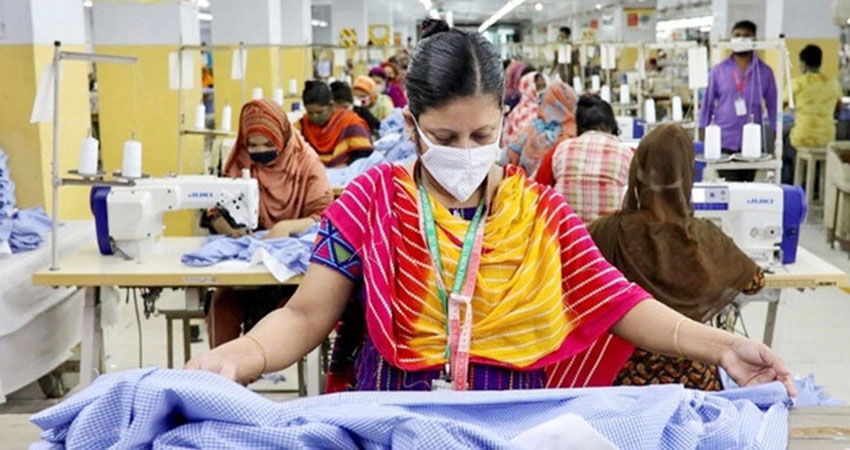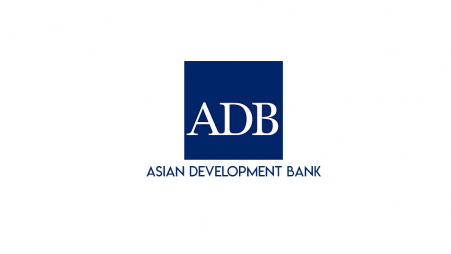The Centre for Policy Dialogue (CPD) has recommended a substantial increase in the minimum wage for garment workers in the country.
The proposed minimum wage is set at Tk17,568 for workers in grade seven, representing the entry-level grade in the sector.
Currently, the minimum wage for garment workers, set by the wage board on 1 December 2018, stands at Tk8,000, a sum frequently scrutinised, particularly given the prevailing economic crisis.
CPD Research Director Khondokar Golam Moazzem unveiled the proposal during a dialogue titled "Readjusting Minimum Wages in Garments Sector: Observations and Recommendations" at Lakeshore Hotel in the capital on Sunday (8 October).
During the discussion, Bangladesh Knitwear Manufacturers and Exporters Association (BKMEA) Executive President Mohammad Hatem said international brands and buyers are "sucking the blood out of the Bangladeshi apparel industry" by imposing additional costs in the manes of ethical practices.
"International apparel brands have no coordination between their ethical and sourcing teams. The ethical team always pushes pressure to comply with some ethical standards, increasing production costs. Meanwhile, the sourcing team of that brand is unwilling to pay for that additional cost," he added.
Hatem also said about 80% of entrepreneurs are now fighting for their survival due to the global economic uncertainty caused by the ongoing Russia-Ukraine war.
Meanwhile, Khondokar Golam Moazzem justified the proposed increase by citing findings from a comprehensive survey conducted by CPD on the garment sector.
He highlighted a key point during the presentation, stating that a mere 7-cent increase in the cost of manufacturing (CM) of a garment product by buyers would be sufficient to cover the augmented labour expenses.
The primary objective of the study was to assess the current socio-economic conditions of garment workers and to provide well-informed recommendations for a fair minimum wage.
The study involved the analysis of both primary and secondary data. As part of this research, the primary data source was a survey conducted on 228 RMG workers from 76 factories located in Dhaka, Narayanganj, Gazipur, and Chattogram.
In the surveyed factories, the average number of male workers is 357 (37%), while the average number of female workers is 603 (62%). Additionally, six Key Informant Interviews (KIIs) were conducted with a diverse range of stakeholders, as reported by CPD.
The research team comprises CPD Research Director Dr Khondaker Golam Moazzem, Senior Research Associate Tamim Ahmed, and Surveyor MM Fardeen Kabi.
The minimum wage board for ready-made garment workers, responsible for establishing a new wage structure within six months since taking charge on 9 April, is nearing its expiration next week. Board sources indicate that an extension of 2/3 months is being pursued to enable the declaration of the minimum wage within this year.
Earlier this month, Bangladesh's international development partners agreed that the Tk8,000 minimum wage, instituted for garment workers some five years ago, is not enough to lead a healthy life.
Highlighting the revision of minimum pay five years ago, EU Ambassador Charles Whitely said, "By any stretch of the imagination, it isn't a very healthy way to live on that salary, particularly if you have kids to feed."
At an event organised by the Centre for Policy Dialogue, Whitely said the responsibility is not solely on the government or the industry but also on brands and buyers, urging real engagement and partnerships to address the challenges faced by workers.
Meanwhile, Charge D'Affaires at the Netherlands Embassy in Bangladesh Thijs Woudstra, said, "Bangladesh [should] move away from 'low wage trap' when graduates [from LDC status]."
"There are no alternatives to improving working conditions and wages," remarked Thijs Woudstra, highlighting the imperative for a comprehensive reassessment of labour policies in the sector.



















